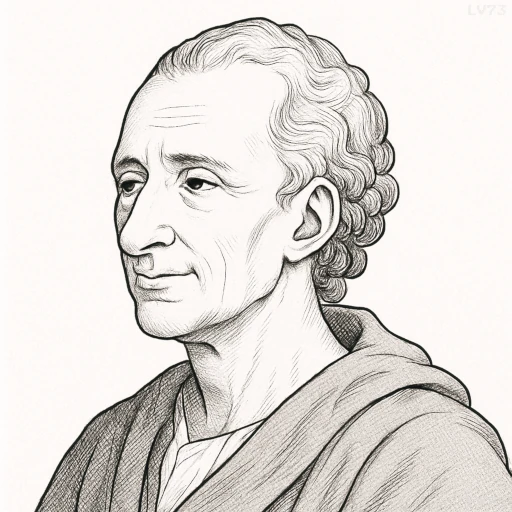“In bodies moved, the motion is received, increased, diminished, or lost, according to the relations of the quantity of matter and velocity; each diversity is uniformity, each change is constancy.”

- January 18, 1689 – February 10, 1755
- French
- Political Philosopher, Jurist, Author of The Spirit of the Laws
table of contents
Quote
“In bodies moved, the motion is received, increased, diminished, or lost, according to the relations of the quantity of matter and velocity; each diversity is uniformity, each change is constancy.”
Explanation
Montesquieu draws from the principles of physics to offer a philosophical reflection on the nature of change and stability. He describes how motion in physical bodies follows predictable laws, dependent on mass and velocity—an allusion to Newtonian mechanics. Yet, his deeper insight lies in the paradox he presents: within the apparent diversity of physical outcomes, there is underlying regularity; within change, there is law-governed consistency.
This reflects a central Enlightenment belief that the universe operates according to rational and discoverable laws. Montesquieu extends this view from the physical world to the moral and political realms. Just as motion has measurable causes and effects, so too do social and political systems, which must be studied through reason, observation, and principle. Even when outcomes differ, they may still reveal a deeper uniformity if we understand the governing laws behind them.
In modern thought, this quote echoes the scientific mindset that seeks patterns in complexity and order in apparent chaos. From natural sciences to social systems, Montesquieu’s message is enduring: true understanding lies in recognizing that change is not randomness, but an expression of deeper, lawful structure. His reflection affirms that constancy does not oppose change—it defines and explains it.
Would you like to share your impressions or related stories about this quote in the comments section?
